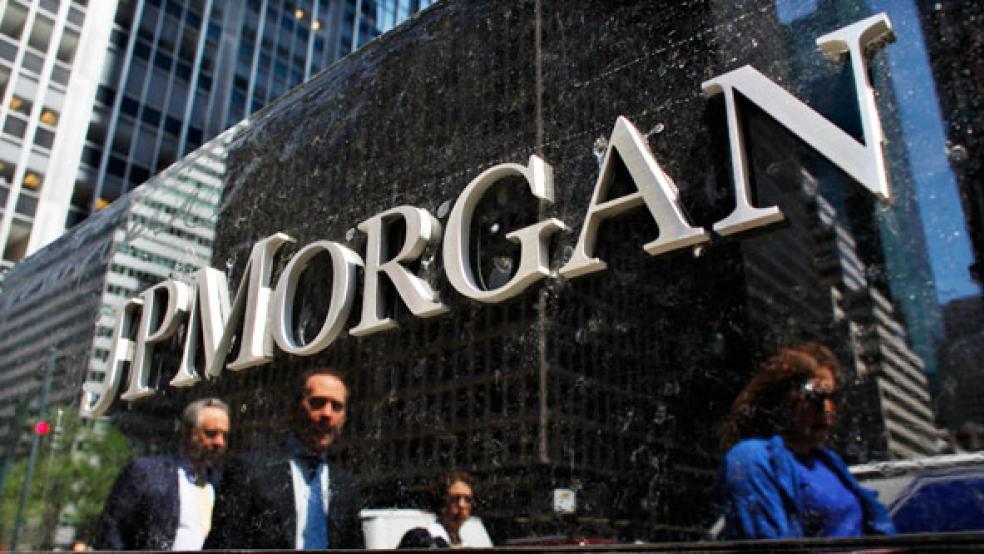New York Attorney General Eric Schneiderman filed a civil fraud suit against JPMorgan Chase (JPM) this week over subprime mortgage-backed securities. And in his role as co-chairman of a federal mortgage task force, he said more such lawsuits would follow against other banks.

“We believe that this is a workable template for future actions against issuers of residential mortgage-backed securities that defrauded investors and cost millions of Americans their homes,” Schneiderman said in a statement.
In announcing the suit, Schneiderman also said it would bring “real accountability for the illegal and deceptive conduct in the creation of the housing bubble.” But that’s far from certain – no individuals were named in the suit – and, perhaps more importantly, it’s also not clear that this suit and any others like it will really make our financial system stronger or safer.
The alleged fraud in this case is all tied to the activities of Bear Stearns & Co., the investment bank whose near-collapse and fire-sale marked the formal kick-off of the financial crisis in March 2008. Rather than focus on a specific deal or security, Schneiderman’s suit broadly alleges that Bear Stearns failed to properly assess the quality of the loans it was packaging up and that the bank kept investors in the dark about its lack of due diligence and the true nature of the securities. Investors would go on to lose billions – about $22.5 billion so far on the $87 billion in loans securitized in 2006 and 2006.
The allegations should be familiar to anyone who has followed the financial crisis and its aftermath – and it should be no surprise to JPMorgan. At the time the bank hastily negotiated the acquisition of Bear Stearns, it is unlikely that it envisaged being held responsible for malfeasance of the kind contained in the allegations. But when the bank snapped up Bear Stearns at a bargain-basement price, part of the risk it was running was that in acquiring the company – as opposed to simply purchasing its assets – it would make itself liable for any kind of past malfeasance on the part of the business and its employees. That’s M&A 101.
RELATED: BofA Pays $2.43 Billion to Settle Claims over Merrill
The Bear Stearns purchase helped vault JPMorgan Chase into the position it occupies today, atop nearly all the Wall Street league tables and one of the three largest banks in the country. But the bank’s survival and subsequent success only makes it a larger target for those who feel they were suckered into investing in mortgage-backed securities and who now say that they relied on claims made by the bankers selling these securities that they were solid investments.
JPMorgan says it will fight the charges, but if past history is any guide, it will ultimately settle the case – and pay for the privilege of doing so. That is what has happened in other cases that have been resolved, and the pattern is well established. It’s clear that a bank that chooses to dig in its heels and fight will have to brace for a long war that it may well lose. Only last week, for instance, a federal judge permitted a case filed by a disgruntled institutional investor against JPMorgan Chase to go forward, a case that involved products sold by both Bear Stearns and Washington Mutual, another firm that would have collapsed had it not been acquired by JPMorgan.
Schneiderman filed the latest case under the Martin Act, the New York state law that enables him to charge the bank with fraud without having the burden of proving that anyone working there actually set out to defraud borrowers or investors. That makes it all the more likely that the outcome will be some kind of settlement.
There really aren’t many winners in this scenario, as one group after another steps up to take a swing at the banks. Banks’ earnings already are under pressure, with few of the giant legacy institutions generating earnings that come close to covering their cost of capital. The costs associated with these lawsuits are simply an additional burden.
Meanwhile, even if investors “triumph,” it’s likely to be muted. After all, we’re still paying the price for a decade’s worth of greed and irrational behavior on the part of Wall Street and those who closed their eyes to the risks associated with their investments, or, for that matter, who chose to believe that despite earning only $30,000 a year, they really should be able to get a low-interest mortgage for the full cost of buying a $500,000 home. If stupidity and foolishness were crimes, the banks could have a field day filing their own lawsuits.
At some point, we need to move past filing lawsuits and fighting them and focus on what comes next. Extracting settlements isn’t necessarily going to help ensure that the post-crisis financial system emerges healthier and more rational; it isn’t going to help the myriad homeowners trapped in their properties thanks to mortgages that are under water. I haven’t seen any reliable data as yet on how many of the country’s unemployed citizens are in that plight and simply unable to relocate to seek out work or apply for new positions outside commuting distance, but it’s hard not to believe that this is a major issue.
RELATED: Attack on Private Equity: Politics or Probity?
We know the banks behaved badly, and that in many cases that bad behavior reached the level of fraud. By all means, hold those responsible accountable. But while filing lawsuits can satisfy a sense of justice and extracting a settlement can make some feel their hostility to Wall Street is rational and justified, we all have to live within some kind of financial system. Those filing suits today may obtain settlements – grudgingly, and only after a battle – but will they have helped to change the system for the better?
Five years after the financial crisis began, that’s the question we should be asking. And if the answer is “no,” then state authorities and regulators should be refocusing their attention.





